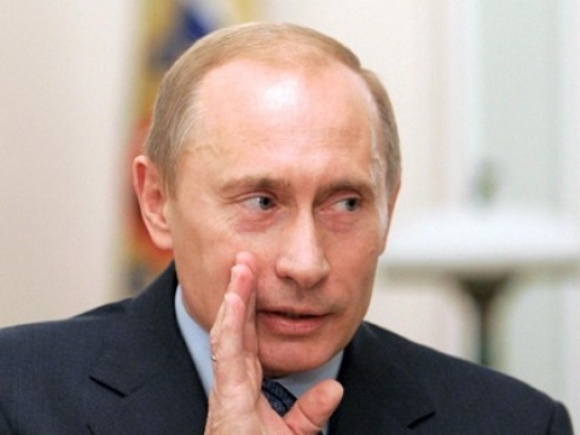
Published 25-09-2012, 05:57
 While criticisms of Russian President Vladimir Putin are heavily covered in the western media, it would be a mistake to think the Russian public at large is hankering for change.
While criticisms of Russian President Vladimir Putin are heavily covered in the western media, it would be a mistake to think the Russian public at large is hankering for change.Whether it is the two-year prison sentences handed out to the Pussy Riot punk rock protesters, new laws that restrict freedom of assembly, a proposed new law that broadens the definition of high treason or the reality that many of those close to the Kremlin are apparently becoming very wealthy, Russian President Vladimir Putin continues to get a bad press in the West.
Many of the criticisms are valid. Putin's ideas about democracy are clearly very different than those held in western Europe or North America. His government is often autocratic and dictatorial. The cronyism that has grossly enriched many in and near the government is a fact and something most Russians hate.
But the criticisms have some-times led to delusional conclusions that Putin is somehow in political trouble or that he will be as he gets deeper into the fresh six-year term as president that he conclusively won earlier this year. This is wishful thinking. The situation is not nearly as dire or as difficult for Putin as is often portrayed.
The opposition the Kremlin faces is arrayed a lot like Canada's NDP. Both movements are populated by disparate groups with often competing agendas (the NDP's traditional left wing patriots and its ardent Quebec nationalists, for example). For the sake of convenience they operate under one heaving umbrella. But what mostly unites them is not a philosophy or set of ideals. They have very different ideas about how to govern. What they share is an intense dislike of those who are in power.
The demonstration against Putin's rule in Moscow last week was a case in point. Although it took place on a pleasant day, this dispirited assembly was a fraction of the size of those that were held in the dead of last winter when electoral fraud in parliamentary elections was, for some time, an emotive issue.
Now, as then, those in attendance had few points of common interest or agreement other than that they strongly disliked the current political arrangements.
Marching in the same parade but never really together were grim neo-fascists whose ideas about state powers are not so different from those of Hitler and Mussolini as well as old-style Leninists and a few hard line admirers of Stalin. There were also newer, gentler neo-communists, if you will, who hold views similar to most western European socialists.
Most telling of all, there were far fewer hip, educated middle class Russians out in the streets than there were during Russia's brief political awakening. This sushi-loving generation - for they probably love eating ridiculously pricey raw fish more than any other group in the world - undoubtedly still yearn for the day when Russia will have fair western-style elections and they will enjoy freedoms that are taken for granted in Sweden, Britain or Canada. But after a summer enjoying the good life at their dachas or as tourists flit-ting around the West, they are exhausted and talked out.
Should a leader finally emerge from this rag-tag band of mal-contents, the task of getting them to work together will be as impossible as herding cats. Nor are their numbers likely to grow any time soon.
Although Moscow has been regarded as the epicentre of the anti-Putin movement - and polling data from half a year ago indicates a majority of Muscovites did not vote for the president - the 15,000 or so marchers navigated streets last weekend that were totally empty of people except for a ridiculously large number of police. With more than 99 per cent of Moscow's 10 million residents getting on with life as if the protesters did not exist, it is difficult to fathom why Putin or anyone else in his government could possible fear them.
Although there was no violence of any kind from any quarter last weekend, the over-the-top security presence and the new laws limiting public gatherings show the government is still afraid of those with different views.
However, none of this matters to the majority of Russians and especially those in the hinterlands. Whatever electoral misbehaviour there was in parliamentary and presidential elections last winter, they still gave Putin a rock-solid majority and another six years in power after 12 years as president and prime minister because they had little interest in the marchers' cause. As long as the oil and gas revenues keeps flowing, what Russians craved and still crave is stability.
There will inevitably be many more demonstrations. Some will be larger and more vocal. Foreigners and dissenters alike will probably get excited again. The government will probably overreact again, too. The contemporary Russian reality, however, is that little is likely to change for at least a few more years because many Russians like things as they are.
By Matthew Fisher
The Vancouver Sun (Canada)



_jpg/250px-ElbeDay1945_(NARA_ww2-121).jpg)





